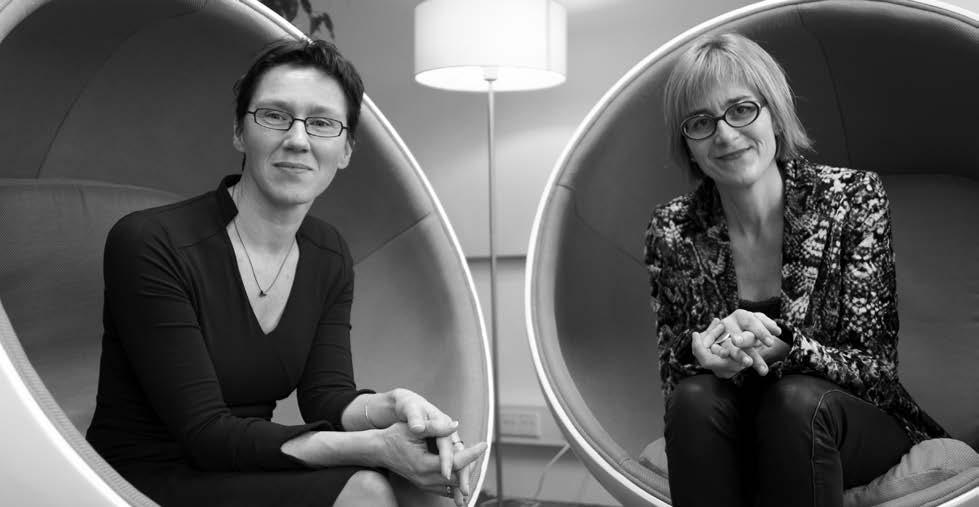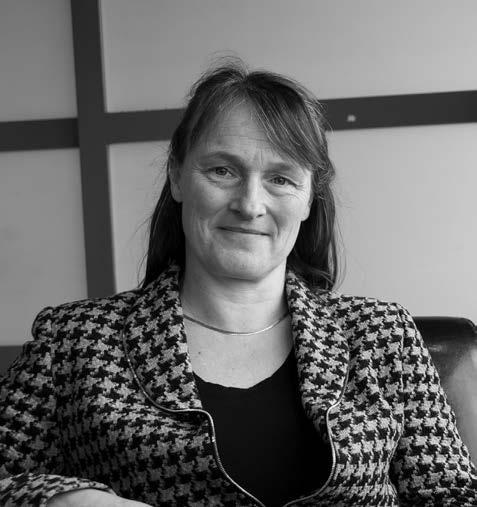
5 minute read
Introduction
This is the public report for 2014, a year in which the words ‘trust’ and ‘supervision’ were often in the media. It is our statutory duty to supervise conformity assessment bodies by way of accreditation based on international standards. This is in order that the trust in the statements issued by them is actually justified.
This was sometimes discussed in the media but the impression was much more often created that we can no longer trust nearly everything or anybody. Food producers and dealers, accountants, care homes, housing corporations, civil-law notaries, banks and many other institutes and organisations were pilloried to a greater or lesser extent. In some cases the work of accredited organisations was involved in this. The question then arose in the media: how is this possible? Weren’t they certified? Or: was this not an accredited laboratory?
In first instance we experience this at the RvA as a negative message, as criticism of ourselves and our accredited organisations. This is of course so. But as with every half empty glass, this glass is also half full. The implicit message is that it is certainly assumed that laboratories, inspection, certification and accreditation produce reliable services and products. Drinking water, lifts, electrical appliances, blood tests, playground equipment, dairy produce: all are checked by accredited organisations. You hardly hear anything about them, because all is well, they can be trusted.
Naming and shaming can help to stimulate organisations and companies to get their ‘house’ in order and to accept their responsibility but it can go too far, in the sense that the good and justified trust is undermined. The standards can be so high that organisations publish every inspection result on their website, just in order to be transparent. The question is: does this provide insight? Does it really create trust? Or does this just lead to more incidents and will the focus be on looking for problems instead of working on improvement?
You could say that supervision is in transition. We are en route to a new balance in influencing the public, hard or soft enforcement, individual responsibility of businesses via internal and external supervision, risk assessments, exemplary conduct. The Netherlands Scientific Council for Government Policy (Wetenschappelijke Raad voor het Regeringsbeleid: ‘WRR’) already discussed this in 2013 in the ‘Supervising public interests’ report (Toezien op publieke belangen) and in 2014 published ‘From a diptych to triangles’ (Van tweeluik naar driehoeken). The Cabinet responded to both reports in September 2014, with not yet very concrete conclusions.
In this public report we highlight various views on these developments of the concept of trust, for instance via several interviews. After all for us as the RvA trust is vital; it is what our name stands for.
Looking back to 2014
Apart from all the work that is necessary for the annual assessment of over 600 RvA accreditations and 250 CCKL accreditations (accreditations by the Foundation for the Promotion of the Quality of Laboratory Testing and for the Accreditation of Laboratories in Health Care), in 2014 we paid close attention to the following matters.
New accreditation standards for medical laboratories, inspection institutions and certification institutions of products, services and persons caused a transition from old to new amongst our accredited organisations in 2014. There were also transition activities in the implementation of the European directives being adjusted to the New Legal Framework (765/2008 and 768/2008) and the transition from the Construction Products Directive to the Construction Products Regulation, whereby accreditation forms the basis for European notification. In the private as well as the public domain of our work ‘transition’ was the key word in 2014.
The peer evaluation by the European cooperation for Accreditation, which was wrapped up in January 2014, and after corrective measures were taken was completed in April with continued RvA membership of the MLA. We also became the co-signatory for the new MLA for emissions and verification. The study into independent governance bodies, on the instructions of the SG Consultations (consultation meetings of the Secretary Generals of various Dutch ministries), was concluded for the RvA with a re-affirmation of the current position and legal form. In 2014, where necessary the bye-laws have been adjusted to the currently applicable principles of good governance and supervision.
Internally a lot of attention has been paid to the development of a completely renovated website. We held surveys amongst various groups of employees and stakeholders, in order to find out what they consider important. This input played a big role in the development of our new site which was launched on 5 March 2015. In addition, in 2014 we completed a comprehensive SWOT analysis (strengths, weaknesses, opportunities, threats). In this connection we also included the input of the employees and external parties. The strategy for the coming years has been established on the basis of this analysis (see Annex 5).
Outlook for 2015
The transition period for the inspection standard ends on 28 February 2015. We will still have a lot of work to do on the transitions of the ISO/IEC 17065 and ISO/IEC 17024 standards. In 2015 the final accreditations according to the CCKL Practice Guidelines (the national standard) will be awarded to medical laboratories. The transition programme of the national to the international standard (ISO 15189) is coming on stream. In 2015 approx. sixty medical laboratories will be assessed against this new standard.
The implementation of adjusted European product directives in the Netherlands will require the attention of the RvA, with regard to giving input to the respective notifying authorities as well as in the sphere of assessments.
The communication with the policy departments of ministries and with inspections remains a major point of attention:
• Consultations with the Ministry of Social Affairs and Employment (‘SZW’) will be held regarding the way in which the SZW assessment system for European notification or Dutch designation of conformity assessment bodies can be converted into regular accreditation.
• In discussions with the Ministry of the Interior and Kingdom Relationships the detailing of the implementation of the Construction Product Regulation and the intended implementation of the Dutch Construction Quality Assurance Act (Wet kwaliteitsborging voor het bouwen) is high on the agenda.
• Information exchange is expected to take place at a generic level with the various official inspectorates – and in particular the Dutch Consumer Product Safety Authority (Nederlandse Voedselen Warenautoriteit), the Social Affairs and Employment Inspectorate (Inspectie Sociale Zaken en Werkgelegenheid) and the Living Environment and Transport Inspectorate (Inspectie Leefomgeving en Transport). The aim in this respect is to prevent unnecessary overlap in assessing the work of accredited organisations and the business sector they serve.
Last but not least a removal is planned for 2015. In the middle of September we will occupy a new office at Daalse Plein in Utrecht. This move gives us the opportunity to further modernise the work concept of the RvA, for instance in the form of knowledge and workplace sharing.
Structure of this public report
This public report consists of two parts. In the first part you can read how in 2014 the RvA contributed to the justified confidence of people, authorities, companies and organisations, by continuously considering how the internal organisation and the external service to clients can be further improved. We also share our ideas here about how we could even better focus and organise all the forms of supervision in the future. The second part includes the formal facts: it shows the figures for 2014 but also information about the primary process of the RvA, the composition of the governing bodies and advisory committees, the strategic choices for the coming years, the scheme managers accepted by the RvA and the various accreditation marks which the conformity assessment bodies are allowed to carry.
Apart from these core subjects you will find six fascinating interviews in this public report: The following people have their say:
• Cordula Wagner, professor in patient safety;
• Jan Hommen, CEO of KPMG Nederland;
• Bart Jan Krouwel, Chairman of the core group for the Food Confidence Taskforce;
• Harry Nieman, quartermaster of private quality assurance at the Dutch Institute for Construction Quality.
These individual interviews alternate with dialogues between:
• Hans Scheffer, head of the Genome Diagnostics section in the Radboud UMC, and Angélique Visser, accreditations project manager at the RvA;
• Vera Dalm, Director of Milieu Centraal, and Maureen van den Wijngaart, policy assistant at the RvA.
They share their thoughts on the question of how the quality level in their work area can be further increased in order to strengthen social trust.
I hope you enjoy reading this report!
Jan van der Poel Director/Chief Executive





